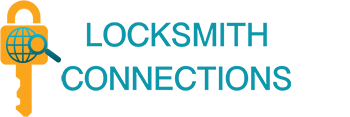- Addison TX
- Allen TX
- Balch Springs TX
- Bluffview TX
- Carrollton TX
- Casa View TX
- Cedar Crest TX
- Cedar Hill TX
- Cockrell Hill TX
- Coppell TX
- Crandall TX
- Dallas TX
- Desoto TX
- Duncanville TX
- Eastwood TX
- Ennis TX
- Far north Dallas TX
- Farmers Branch TX
- Ferris TX
- Flower Mound TX
- Forney TX
- Frisco TX
- Garland TX
- Grand Prairie TX
- Greenland Hills TX
- Highland Park TX
- Hutchins TX
- Irving TX
- Kaufman TX
- Kessler TX
- Lake Dallas TX
- Lake Highland TX
- Lancaster TX
- Lawson TX
- Lewisville TX
- Mckinney TX
- Mesquite TX
- Midlothian TX
- NE Dallas TX
- North Dallas TX
- Oak Lawn TX
- Old East Dallas TX
- Palmer TX
- Parkdale TX
- Plano TX
- Pleasant Grove TX
- Prosper TX
- Red Oak TX
- Redbird TX
- Richardson TX
- Rockwall TX
- Rowlett TX
- Royse City TX
- Sachse TX
- Seagoville TX
- South Dallas TX
- Sunnyvale TX
- Terrell TX
- The Colony TX
- University Park TX
- Uptown TX
- Vickery Meadow TX
- Waxahachie TX
- West Dallas TX
- Wilmer TX
- Wolf Creek TX
- Wylie TX
- Wynnewood North TX
Dallas Not your Area?
Go back to » Locksmiths in Texas, Texas or enter your zip code to find the best Locksmith near you
Enter your zip code to find the best Locksmith near you
Dallas–Fort Worth metroplex
The Dallas-Fort Worth metropolitan area, officially designated as Dallas-Fort Worth-Arlington by the United States Office of Management and Budget, is a metropolitan statistical area in the US state of Texas and includes eleven counties. It is the economic and cultural center of North Texas. Area residents also call it DFW (airport code) or Metroplex. The population of the Dallas-Fort Worth-Arlington Metropolitan Statistical Area was 7,573,136 according to the 2019 population estimates from the U.S. Census Bureau, making it the most populous metropolitan area in Texas and the southern United States, the fourth largest in the US and the 10th. largest in America. In 2016, the Dallas-Fort Worth metropolitan area rose to the number one spot in the US in terms of annual population growth.
The economy of the metropolitan region is based mainly on banking, commerce, insurance, telecommunications, technology, energy, health, medical research, transportation and logistics. As of 2020, Dallas-Fort Worth has established 24 Fortune 500 companies, the third-largest concentration of Fortune 500 companies in the United States after New York City (70) and Chicago (34). In 2016, the metropolitan economy surpassed Houston to become the fourth largest in the US The Dallas-Fort Worth metropolitan area had a GDP of just over $ 620.6 billion in 2020. If the Metroplex were a sovereign state , it would be the 20th largest economy in the world as of 2019. In 2015, the conurbation would be the ninth economy if it were a US state.In 2020, Dallas-Fort Worth was recognized as the 36th best metropolitan area for STEM professionals In the USA.
The Dallas-Fort Worth metropolitan area includes the largest concentration of colleges and universities in Texas. UT Southwestern Medical Center is home to six Nobel Laureates and ranked # 1 in the world for healthcare facilities in the biomedical sciences. The Metroplex is also the second most popular megachurch metropolis in Texas (connected to the Greater Houston metropolitan area), ranked as the largest Christian metropolitan statistical area in the U.S. and has one of the largest LGBT communities in Texas since 2005.

